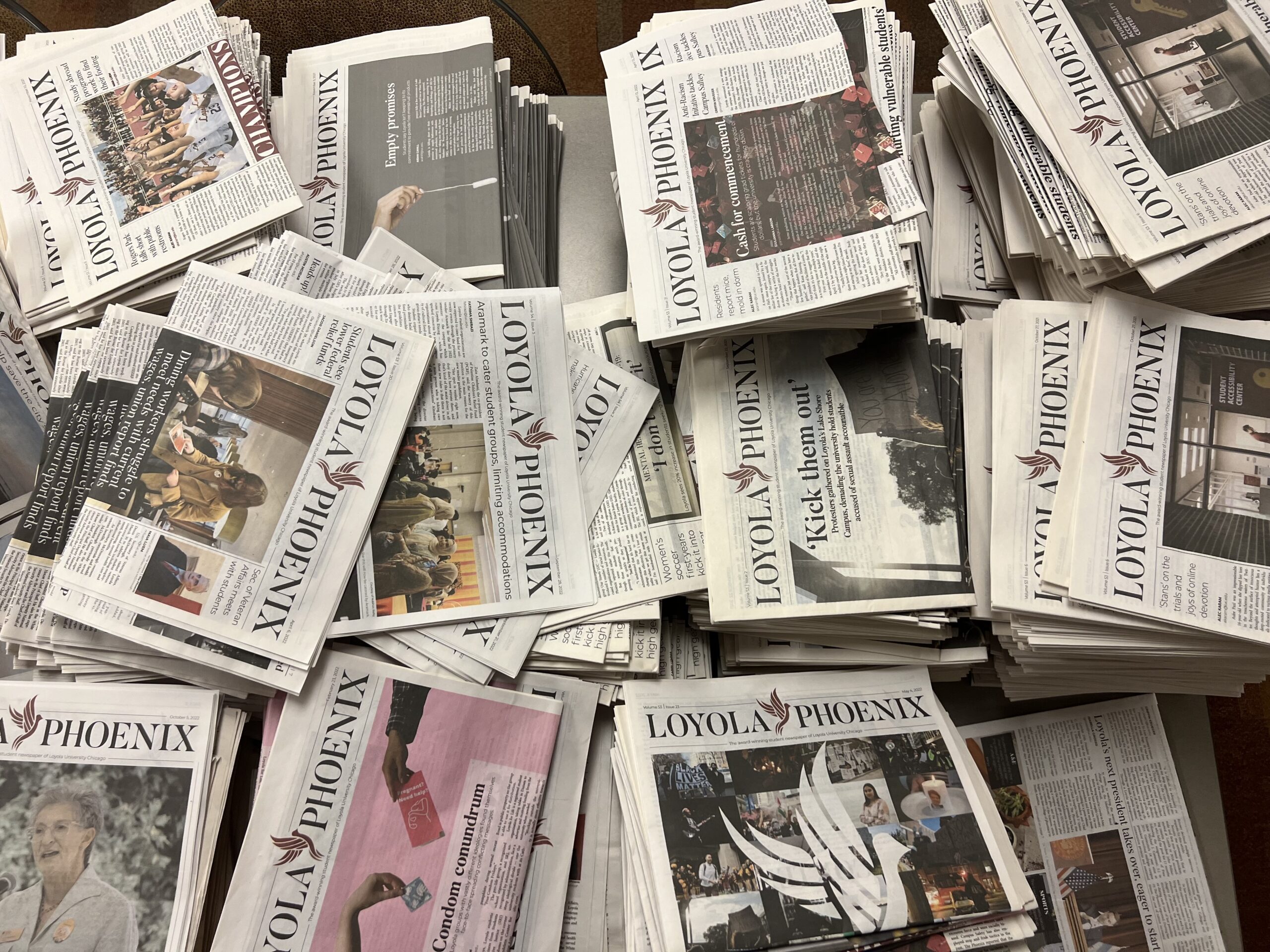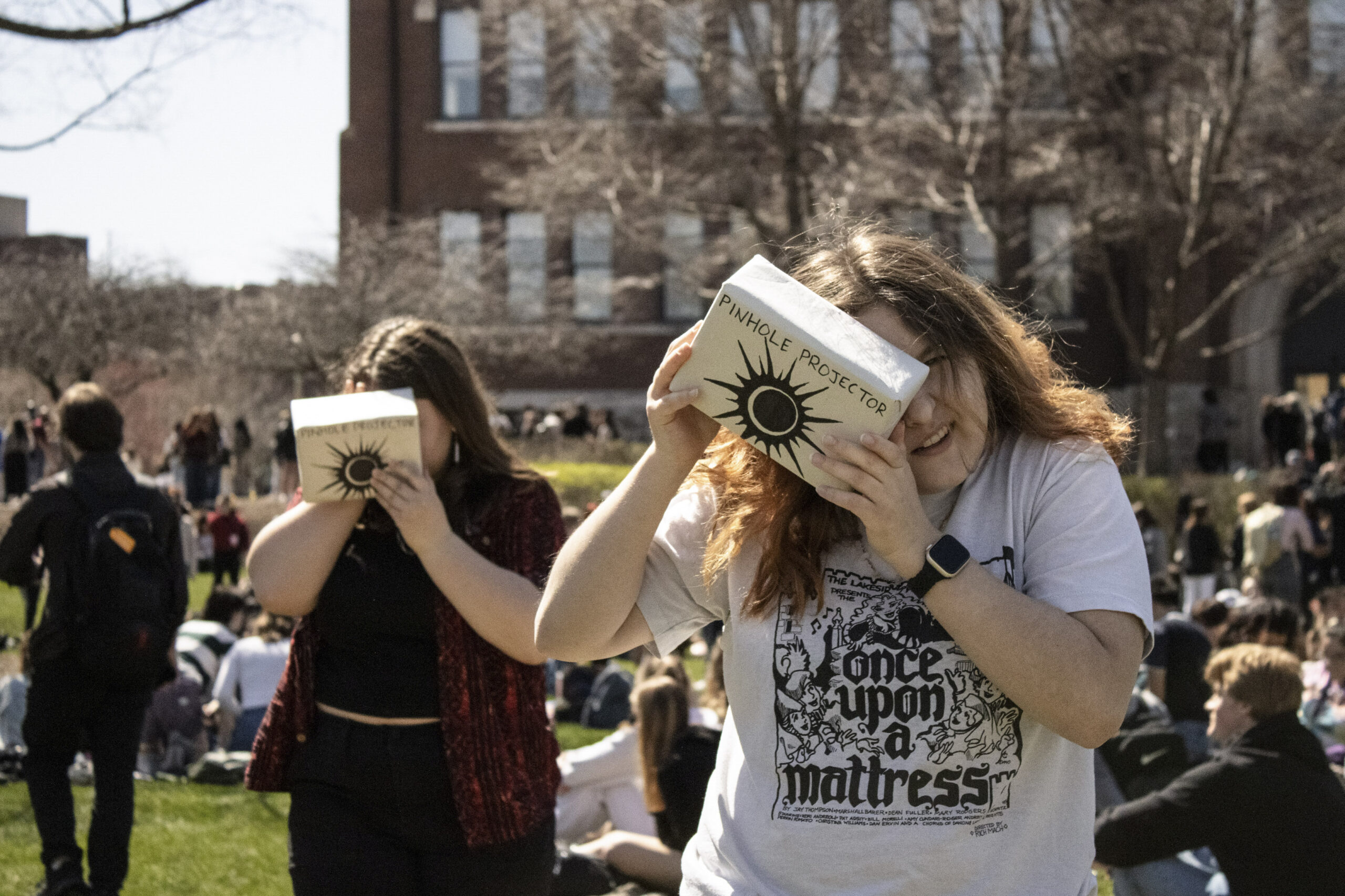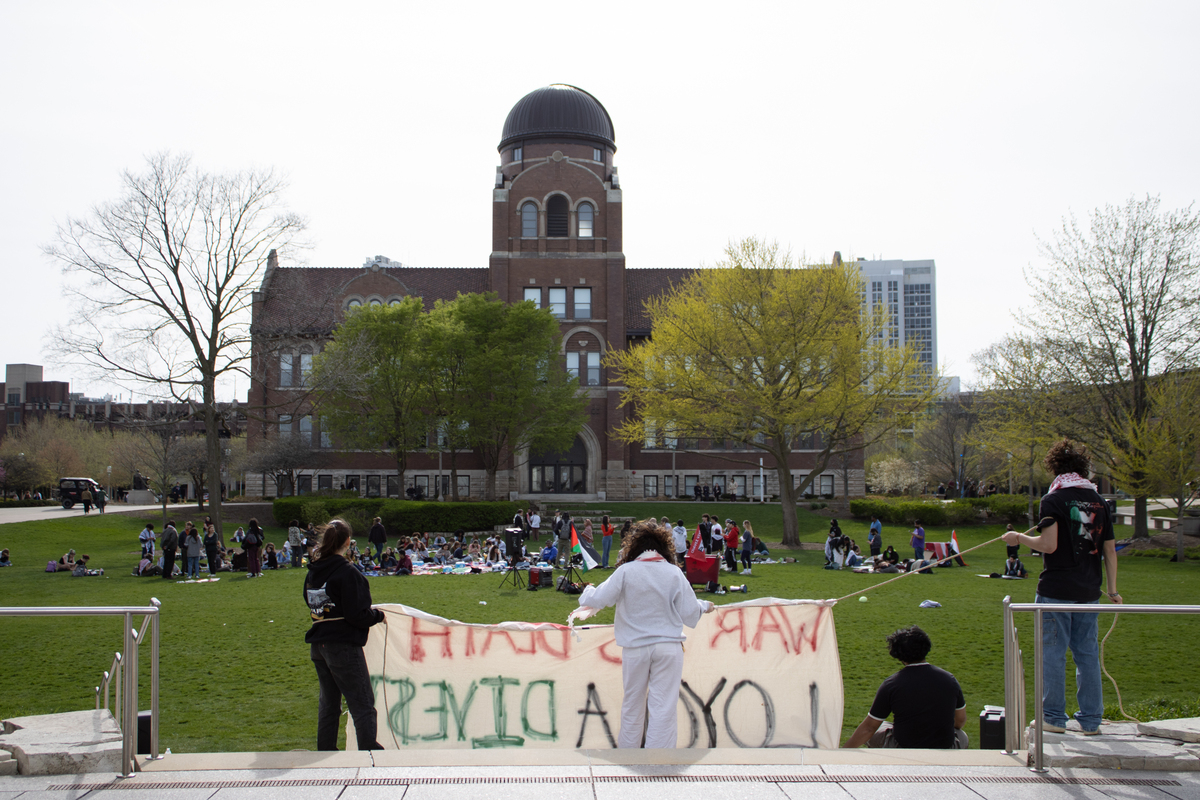Lake Shore, Water Tower and Health Science campuses each offer food free of charge to students in need.
Loyola Food Pantries Offer Resources for Student Food Insecurity

Loyola’s three on-campus food pantries provide free items to students dealing with food insecurity. The pantries, overseen by the Office of the Dean of Students, are available to all students and operate on Loyola’s three main campuses.
Associate dean of students Samantha Maher Sheahan, whose role involves helping establish pantries on campus, said the Arrupe Market pantry opened during the 2018-19 school year. The pantry is located on the second floor of McGuire Hall on the Water Tower Campus.
Iggy’s Cupboard, another pantry, was previously located in the Damen Den but has been moved to room 243 of Damen Student Center. The HSC Food Pantry on the first floor of the Maywood Health Science Campus’s Cuneo Center opened this fall, according to Cynthia Rosales-Rodriguez, assistant dean of students and Coordinated Assistance and Resource Education case manager for the office.
All three pantries provide food to anyone with a Loyola student ID and hours of operation correspond with the building in which they’re located, according to Rosales-Rodriguez.
“They are open as long as the buildings that they’re in are open,” Rosales-Rodriguez said. “The building that Iggy’s is in is Damen Student Center. Obviously there are some university closure dates that students may not be able to access the pantry in because the university is closed as a whole.”
Rosales-Rodriguez said they primarily offer shelf-stable items that don’t need refrigeration such as soup, pasta, cereal, pancake mix, granola bars, instant mashed potatoes and canned beans, fruits and vegetables. However, depending on donations, they sometimes offer refrigerated items including eggs, milk, hummus and orange juice.
Each pantry is stocked using food donated by students, faculty and staff, as well as their own individual funding sources. Arrupe Market operates independently because it’s been open for a longer period and procures resources using its own system, Rosales-Rodriguez said. It receives supplies from the Greater Chicago Food Depository, according to Maher Sheahan.
Iggy’s Cupboard obtains its resources from a combination of funds designated through the Division of Student Development and donations, which can be dropped off any time the pantries are open. In addition to food donated by students, faculty and staff, which is accepted by all three pantries, Iggy’s Cupboard purchases its own supplies using the funds, according to Rosales-Rodriguez.
The HSC Food Pantry is funded by a class gift from Stritch School of Medicine students intended to help address food insecurity at Loyola. The funding was an initiative of the school’s class of 2020.
Rosales-Rodriguez said Iggy’s Cupboard and HSC Food Pantry currently accept donations which ship directly to them through purchases on their Amazon wish lists, and donations can also be dropped off at the pantries in person or at suite 300 in Damen.
Maher Sheahan said many medical students struggle with food insecurity because they’re generally discouraged from working due to their rigorous class workload. Some medical students also lost their eligibility for federal SNAP benefits during the pandemic due to changes in eligibility rules, contributing to their need levels, according to Maher Sheahan.
The HSC Food Pantry collects data by asking visitors to fill out a form as they leave the pantry, but the office is working on recording more consistent data through a swipe access system, according to Rosales-Rodriguez. Maher Sheahan said the data collection asks students to answer basic questions about their needs and how useful items at the pantries are to them, but doesn’t quantify what items they take.
Rosales-Rodriguez said the HSC Food Pantry has been utilized at least 90 recorded times this semester by 42 different students.
Since the start of the semester, about 150 different students have utilized Iggy’s Cupboard, and Maher Sheahan said she estimates about four or five uses per person.
Along with help from student front desk staff, these two pantries are operated by Rosales-Rodiguez, who said she manages day-to-day functions such as inventory and stocking. She said Maher Sheahan manages budgeting and the ordering of supplies.
Students can sign up to volunteer at either pantry online. Iggy’s Cupboard currently has five student volunteers while the HSC Food Pantry has one, according to Rosales-Rodriguez.
Rosales-Rodriguez said some universities have to impose restrictions on the amount of food provided to students due to resource limitations, but Loyola doesn’t currently have to do this because it has sufficient resources.
Loyola’s three pantry locations are an intentionally decentralized approach to allow any student to access food regardless of which campus they live or take classes at, according to Maher Sheahan. She said this approach also enables each pantry to tailor its operations to the specific needs of each campus.
“I think what’s great about that, the opportunity there, is that each one can be aligned with that campus, and that campus’ needs, and those students’ needs,” Maher Sheahan said. “Because HSC’s needs are different than potentially Lake Shore needs and different from Water Tower needs.”
Prior to 2020, the dean’s office offered a service allowing students to submit a list of food needs, but the system was underutilized because the method of delivery, where students had to fill out an online form and schedule a specific time, was more complicated than walking into an open-access pantry, Maher Sheahan said.
Water Tower Campus had a different pantry in Baumhart Hall, according to Maher Sheahan.
Maher Sheahan said the office conducted a national health survey during the pandemic showing a substantial level of low-to-medium food insecurity among students, which demonstrated need and enabled the opening of Iggy’s Cupboard in October 2022. She said Damen’s previous food assistance service had the same name, which the office decided to keep for the pantry.
Rosales-Rodriguez said Iggy’s Cupboard was relocated to accommodate the new system of swipe access in which students scan their ID for security reasons and data collection on the number of students utilizing the space.
The data collection allows them to provide information such as student feedback showing the type and level of need often requested by nonprofit organizations to demonstrate food insecurity on campus, Rosales-Rodriguez said.
She said the dean’s office hopes to establish partnerships next year to provide a more sustainable donation stream for Iggy’s Cupboard with organizations such as Greater Chicago Food Depository, which will be possible after more data is collected.
The dean’s office and its pantries are part of Loyola’s CURA Network, which helps students find support on issues including food insecurity, behavioral and care-related concerns, and academic advising, according to Rosales-Rodriguez.
Through the nonprofit group Swipe Out Hunger, the office partners with its counterparts at nearby universities such as DePaul University and the University of Illinois Chicago to exchange information on their pantries and ideas on how to improve their operations, according to Maher Sheahan.
Rosales-Rodriguez said she finds her work with the pantries especially fulfilling as the issue of hunger receives increasing focus in institutions of higher education.
“When I reflect on the various roles that I’ve had over the years, I think that working with students that might be experiencing basic needs while they’re navigating their time at university is definitely the most rewarding of my experiences working with students,” Rosales-Rodriguez said.
Maher Sheahan said her long-term goal is to establish a broader basic needs hub in conjunction with the pantries where students can receive additional resources such as toiletries and rent clothes for job interviews. However, she said her immediate focus is to continue data collection so the pantries can run almost exclusively on partnerships with local groups and donations.
“When there are small things that we can do collectively they are so much more impactful,” Maher Sheahan said. “It’s creating this whole community that’s taking care of one another. It’s been really fulfilling work and really important work, and we truly do not want our students to be hungry.”
Featured image by Ryan Pittman / The Phoenix










